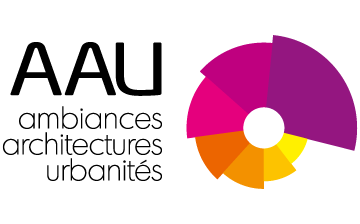Ambiances de l’anthropocène. À l’écoute des mutations des milieux de vie
Anthropocene atmospheres. Listening to our living environments
Sébastien De Pertat Thèse de doctorat débutée en 2021
Encadrement : Rachel Thomas
Financement : ANR « Sensibilia »
FR
Cette recherche se propose d’explorer les potentialités d’une approche sensible par l’écoute de nos milieux de vie à l’ère de l’anthropocène. En s’inscrivant dans la recherche sur les ambiances, on s’intéressera à la façon dont nos sensibilités contemporaines sont affectées par les bouleversements écologiques en cours. Nous partons de l’idée que l’anthropocène appelle à ré-interroger certains des cadres conceptuels qui ont fondé nos relations à notre environnement et aux entités humaines et non-humaines qui le peuple.
Cette recherche fait alors l’hypothèse que l’approche sensible par l’écoute offre un potentiel heuristique pour révéler certaines relations d’interdépendance au monde, et un potentiel critique en faisant un pas de côté par rapport à l’approche objective de la démarche scientifique. Elle vise ainsi à imaginer et à conscientiser par l’écoute d’autres façons de considérer les mondes qui nous entourent, et à ouvrir des pistes de réflexions pour une écologie politique des ambiances (Thomas, 2018 ; Masson & Thomas, 2020).
EN
This research proposes to explore the potential of a sensitive approach by listening to our living environments in the anthropocene era. As part of the research on ambiances, we will be interested in how our contemporary sensibilities are affected by the current ecological upheavals. We start from the idea that the anthropocene calls for a re-examination of some of the conceptual frameworks that have underpinned our relationships to our environment and the human and non-human entities that inhabit it. This research then makes the hypothesis that the sensitive approach through listening offers a heuristic potential for revealing certain interdependent relationships in the world, and a critical potential by taking a step aside from the objective perspective of the scientific approach. It thus aims to imagine and raise awareness through listening of other ways of considering the worlds around us, and to open up avenues of reflection for a political ecology of ambiances (Thomas, 2018; Masson & Thomas, 2020).
